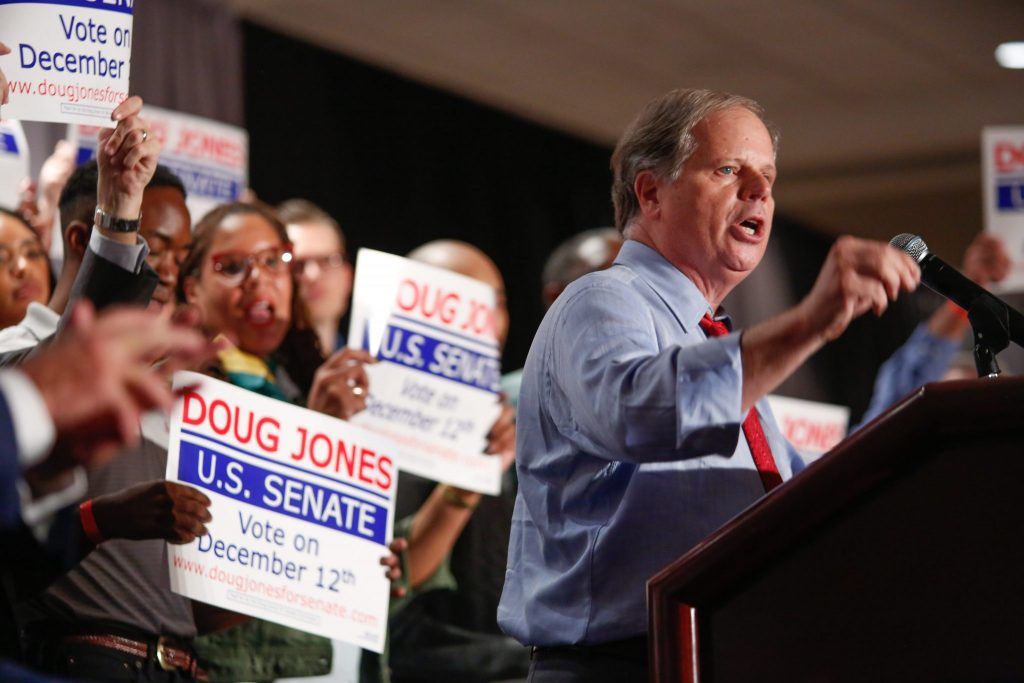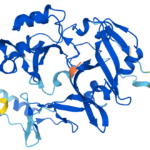A smallish effort to mimic Russian disinformation tactics comes to light in Alabama
By Matt Field | January 11, 2019
 Doug Jones speaks at a campaign event. Credit: Digital Campaign Manager for Doug Jones for Senate. CC BY-SA 4.0.
Doug Jones speaks at a campaign event. Credit: Digital Campaign Manager for Doug Jones for Senate. CC BY-SA 4.0.
At least one group of political operatives in the United States thought it was a good idea to emulate the Russian active measures campaign that tried to tip the last presidential election to Donald Trump. In this case, however, the sought after electoral prize was a Democratic US Senate victory in the deeply Republican state of Alabama.
A social media researcher whose company authored a detailed report recently released by the Senate on Russia’s disinformation campaign also, as it happens, conducted what he calls a “research project” in Alabama during a 2017 special election there. Jonathon Morgan employed some of the tactics of the now-notorious Russian effort: He operated a Facebook page that feigned alignment with a targeted subset of the electorate, in this case, conservative voters. Really, however, he sought to see whether “counter messaging” could sway them. The page encouraged conservatives to support a write-in-candidate instead of the Republican nominee.
Morgan says his research was just part of a broader effort by a firm called American Engagement Technologies. Documents detailing the group’s work were leaked to media outlets, including The New York Times. A report states that the group “experimented with many of the tactics now understood to have influenced the 2016 elections.” It also suggests the group had a hand in making it appear the Republican candidate’s campaign “was amplified on social media by a Russian botnet.” Morgan denies that he was involved in certain aspects of the firm’s work, including the botnet scheme.
In a startling upset, the Democrat in the Alabama Senate race, Doug Jones, beat Republican Roy Moore by some 20,000 votes. Moore faced accusations that as an adult he had pursued sexual relationships with teenage girls. Given these troubles, Morgan’s campaign may not have impacted the final result much. Morgan, as it turns out, wasn’t the only person dabbling in electoral disinformation. An Alabama operative named Matt Osborne worked on a Facebook page called Dry Alabama which sought to convince voters that Moore intended to return Alabama to the days of Prohibition, when alcohol was illegal. The effort was intended to drive a wedge between Moore and business-oriented conservatives, according to the Times.
While Morgan has distanced himself from the disinformation campaign in Alabama, Osborne told the Times that his efforts “were a moral imperative.”
In an article with no byline, RT, a Russian-government-linked media outlet, worked to draw a false equivalence between the Russian operation, which allegedly had a budget of millions of dollars and targeted the US presidency, and Morgan’s Alabama project, which cost about $100,000 and perhaps helped temporarily narrow the Republican advantage in the US Senate. The RT article accuses Democratic operatives of “creating and amplifying the ‘Russiagate’ hysteria over the past two years in a textbook case of psychological projection.”
Jones has since asked the Federal Elections Commission to investigate whether election laws were violated during the campaign.
Publication Name: The New York Times
To read what we're reading, click here
Together, we make the world safer.
The Bulletin elevates expert voices above the noise. But as an independent nonprofit organization, our operations depend on the support of readers like you. Help us continue to deliver quality journalism that holds leaders accountable. Your support of our work at any level is important. In return, we promise our coverage will be understandable, influential, vigilant, solution-oriented, and fair-minded. Together we can make a difference.
Keywords: Disinformation, Donald Trump, Doug Jones, Elections, Facebook, RT, Roy Moore, Russia
Topics: Disruptive Technologies, What We’re Reading
















“In an article with no byline, RT, a Russian-government-linked media outlet, worked to draw a false equivalence between the Russian operation, which allegedly had a budget of millions of dollars and targeted the US presidency, and Morgan’s Alabama project, which cost about $100,000 and perhaps helped temporarily narrow the Republican advantage in the US Senate. ”
– New York Times
The Rice-Davies rule applies!